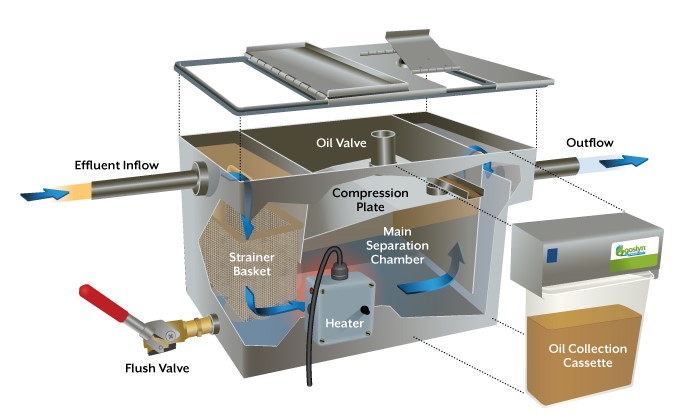Checkout using your account
Checkout as a new customer
Creating an account has many benefits:
- See order and shipping status
- Track order history
- Check out faster
Monthly Archives: September 2019
-
Read more »
Making Good Use of Grey Water
In the UK, it is estimated that the average person uses 150 litres of water every day. This is a lot of water for one person. Multiplied by the entire population in the UK, and you will find that there is a lot more water being used today that twenty years ago.
Commercial establishments tend to use higher quantities of water at any given time than domestic properties. The question, therefore, is not what they use the water for but how they use it.
It is not strange to find water being wasted in restaurants and catering businesses as drains are ever flowing with water generated from activities such as dish washing, general cleaning and even food prep.
This water is called greywater.
Much of this greywater is reusable and can help reduce water wastage which will eventually ensure that there is more water for everyone and that the environment is kept safe. However, it is important to understand how and when to use greywater.
-
Read more »
GreaseShield vs Goslyn: Battle of the GRUs
Just a few years ago, only a small minority of people had heard of FOGs, fatbergs and grease traps let alone more specialist terms such as grease removal units (or GRU’s). Now, the topic dominates the headlines with the term ‘fatberg’ even being added to the dictionary. The public, both on a domestic and commercial level are now greatly aware of the masses congealing in the public sewer systems on a global scale, the causes and how we can collectively combat the problem.
Although grease traps offer a rudimentary solution for separating fats, oils and grease from wastewater before being deposited into the main drainage network, GRU’s or automatic grease traps offer a more sophisticated solution.
Here we set the two leading suppliers of GRU’s head to head to determine which is the best grease management solution for your business. -
Read more »
Biggest Fatbergs on Record
Is it me or does it seem like fatbergs are only getting bigger and badder -- that the problem is only getting worse?
Back in 2013, when the word fatberg hadn’t even made it into the dictionary, a berg found in a sewer in Kingston-Upon-Thames was proclaimed the biggest in British history – the size of a bus, it weighed in at 15 tonnes.
Since then we’ve been finding fatbergs which are over ten times that. The Whitechapel monster which hit headlines in September 2017 weighed in at 130 tonnes and only held the record for six months before an even bigger berg was found in South Bank in April 2018. In February of this year, a fatberg found in Liverpool trumped all others, weighing in at 400 tonnes.
-
Read more »
5 Ways to Avoid the Risk of a Water Company Fine
Recently, the way foodservice operators have been disposing of their fats, oils and grease (FOGs) has come under increased scrutiny. This is partly because of the increasing number of stories emphasising the environmental and social impact of the UK’s fatberg problem.
Why Are Water Companies Clamping Down?
-
Read more »
Poor Grease Management and FOG – the Effects on Wildlife
Two weeks ago, we looked at the environmental impact of poor grease management: how releasing FOGs into our sewers wastes resources and helps to pump greenhouse gases into our atmosphere.
This week, we’ll look more closely at the impact of reckless grease disposal on wildlife. including the smell, sewage overflow and the side effects.





